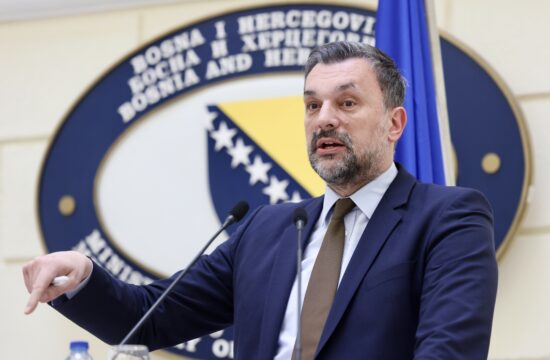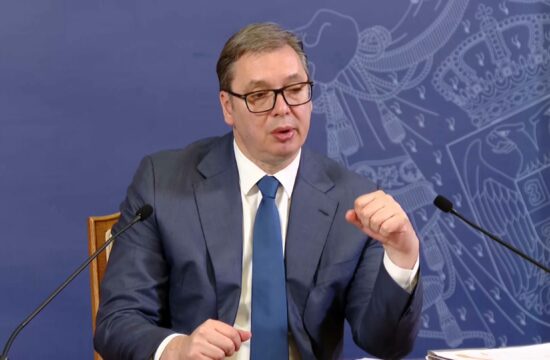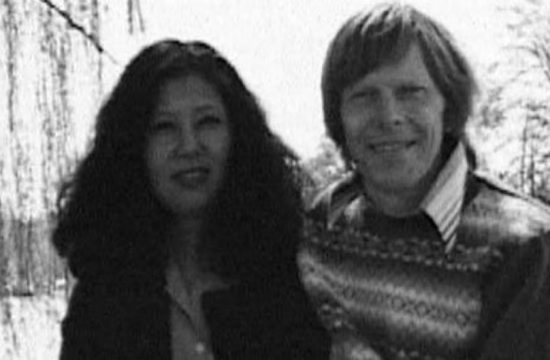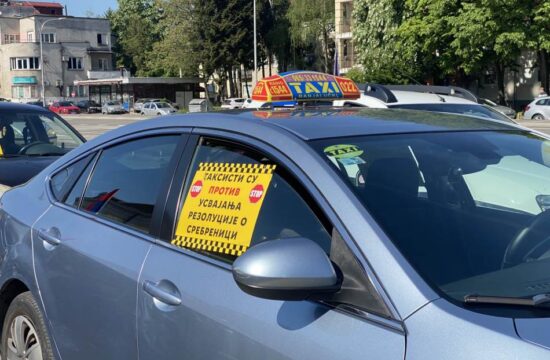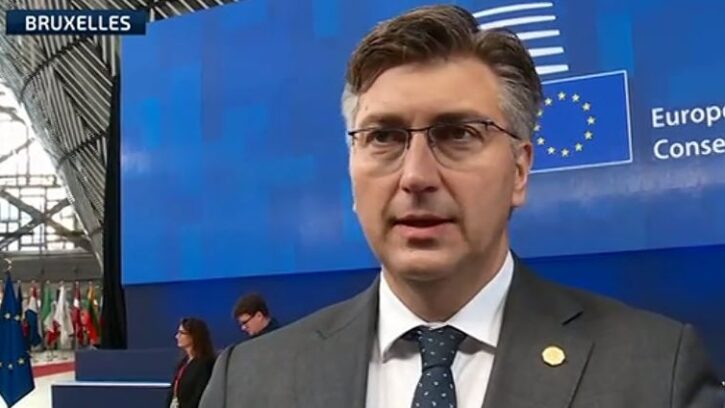
Croatian Prime Minister Andrej Plenkovic responded to a statement by his Bosnian counterpart Denis Zvizdic on Friday, saying that non-interference in internal affairs was a 19th century concept and that as prime minister of Croatia he had a responsibility towards Croats living abroad.
The Chairman of Bosnia and Herzegovina's Council of Ministers, Denis Zvizdic, an ethnic Bosniak, speaking earlier on Friday, accused Plenkovic of interfering in Bosnia and Herzegovina's internal affairs following Plenkovic's recent speeches at EU institutions in which he had warned that ethnic Croats in that country were put in an unequal position in relation to the country's other two constituent ethnic groups, Bosniaks and Serbs.
Plenkovic's comments came after centrist Zeljko Komsic of the Democratic Front (DF) was elected the Croat member of Bosnia's tripartite presidency, rather than his opponent Dragan Covic of the nationalist Croat Democratic Union (HDZ BiH), a sister party to Plenkovic's own HDZ which is in power in Croatia.
The election result is largely attributed to votes of ethnic Bosniaks, as both Bosniak and Croat member of the presidency are elected by voters in the semi-autonomous Federation of Bosnia and Herzegovina (FBiH), which includes roughly half of the country's territory and in which Bosniaks outnumber Croats four-to-one.
“These theories about non-interference in internal affairs are a remnant of 19th century international relations. This is the 21st century, and we are responsible for all major and vital political issues, particularly those for which I as the prime minister have a special responsibility, considering the fact that Croatia is a signatory and guarantor of the (1995) Dayton agreement. Although it's been 23 years since its signing, I am interested in it being implemented the way it was conceived,” Plenkovic told reporters after the Europe-Asia Summit in Brussels, referring to the 1995 Dayton agreement which ended the war in Bosnia, and introduced the unwieldy system of ethnic-based power-sharing in the country.
His comment came in reponse to Zvizdic's earlier objection that Plenkovic's vocal opposition of the election results represented meddling in Bosnia's internal affairs.
“Abusing Croatia's EU membership, Plenkovic acts as if he was the prime minister of Bosnia and Herzegovina and not of Croatia, which is not in line with good neighbourly relations and represents open and direct interference in Bosnia and Herzegovina's internal affairs on Croatia's part,” Zvizdic said.
Plenkovic said that Zvizdic, with whom he otherwise has very good relations, was well aware of how much Croatia, especially since he became prime minister in 2016, had contributed to strengthening bilateral relations and had helped Bosnia and Herzegovina on its EU membership path, adding that it would continue to do so in the future.
Plenkovic said that Zvizdic was aware that one ethnic group in FBiH, the Bosniak-Croat half of Bosnia and Herzegovina, had elected a presidency member for another ethnic group, and that this was “not good”.
“This is a serious matter for Croatia, and we have every legitimate right to bring this up in international forums, and to sensitise others (to this problem). I said yesterday that many politicians do not understand these details, and that it is important that we explain this, and appeal for such election legislation which would ensure legitimate representation of everyone, especially in the presidency ” Plenkovic said.
Plenkovic met with EU's foreign affairs chief, Federica Mogherini, on the margins of the summit, and said that Mogherini was one of the persons who understood this issue.
Responding to a reporter's remark that at the EU summit on Thursday Mogherini had said that Zeljko Komsic was elected in line with existing law, Plenkovic said that he was not speaking in terms of legality.
“My intervention was not in terms of legality, but in terms of a serious, major political problem, where the political will of a constituent ethnic group can be circumvented because of an inadequate legal framework. Their equality must be reflected in institutions,” Plenkovic said.
Plenkovic has mounted a diplomatic offensive to draw attention to the fact that Zeljko Komsic has been elected the Croat member of Bosnia and Herzegovina's presidency with Bosniak votes, what he said was “against the spirit of the Dayton agreement” which ended the country's 1992-95 war. He discussed the matter with French President Emmanuel Macron during a visit to Paris on Tuesday, and raised the issue again at a meeting of EU leaders on Thursday.

